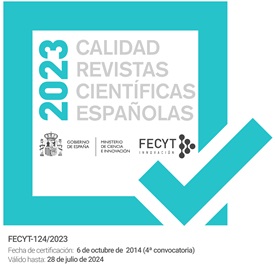The specific needs of some universities (attending several campuses), as well as the demands of adapting to the EHEA (in order to achieve better coordination among universities in joint programmes and projects) could be efficiently solved by using Information and Communication Technologies and distance learning tools. In this context, the efficiency of such solutions is a relevant question.
AimsThe evaluation of the relative efficacy, in terms of academic performance, of videoconferencing in the teaching of accounting at university level.
MethodA large dataset, including current academic performance, previous academic performance and other relevant factors, for students in groups using videoconferencing and traditional methods was built. Multivariate analyses were performed in order to test whether students at videoconferencing groups presented significant differences in performance.
ResultsThe results indicated that videoconferencing does not negatively affect students’ performances.
Las necesidades de determinadas universidades (atendiendo docencia en varios campus) así como las demandas resultantes de la adaptación al EEES (coordinación inter-universitaria, promoción de programas y proyectos conjuntos, etc.) pueden resolverse de forma eficiente utilizando herramientas de educación a distancia y tecnologías de comunicación. En este contexto, la eficiencia de estas soluciones es un factor relevante.
El principal objetivo de este trabajo es evaluar la eficiencia de la videoconferencia, en términos de rendimiento académico, en su uso en educación superior en contabilidad.
Como método, se comparan los resultados obtenidos por grupos siguiendo un esquema tradicional con otros grupos que han utilizado videoconferencia.
Los resultados indican que el uso de videoconferencia no afecta al rendimiento de los alumnos que han utilizado este método.
Acknowledgements: Paper financed through the Excellence Research Projects scheme. Junta de Andalucía (Regional Government of Andalusia) - FEDER (P07-SEJ-02670)






